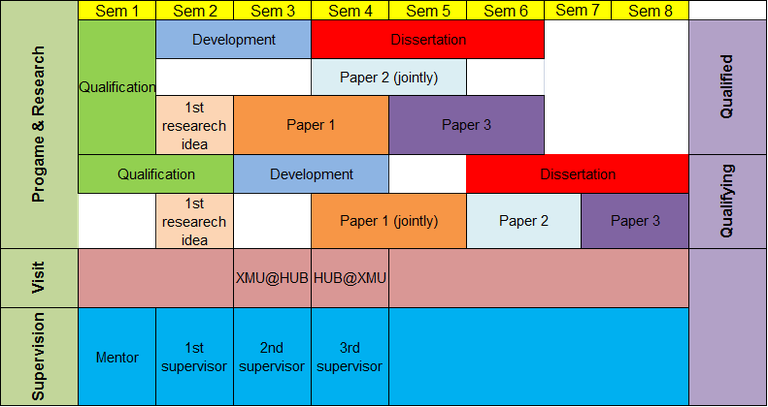Qualification program 2013-2017
Soft skill electives
The program aims to foster both students' knowledge and curiosity and their soft skills as future team leaders and experts. Therefore, our students are required to take courses outside of their field of studies:
Program for further Education and Qualification at HUB
Course programme
Students entering the program should have a background in the areas
- Econometric Methods
- Microeconomics or Macroeconomics
- Time Series Analysis
- Multivariate Analysis
Students lacking backgrounds in these areas receive a "qualification stipend", can extend their qualification period to two semesters such that they finish their development phase at latest after 24 months. Besides the regular course program, they have to catch up in the aforementioned foundations. Courses in these areas are offered in cooperation with the BDPEMS and the MSc. "Statistics" at HUB (www.stat.de).
During the first year the students selected will undergo basic training at their host university (Humboldt-Universität zu Berlin or Xiamen University). In the third semester all students will be based at Humboldt-Universität zu Berlin and will transfer to Xiamen University for the fourth semester. In the remaining semesters, students will focus on their dissertations under their supervisors’ instructions.

During the regular IRTG program, students have to
- collect 90 ECTS from course work and own teaching,
- regularly attend a research seminar during the dissertation phase (minimally 3 semesters),
- attend at least one course in soft-skills,
- be involved in the organization of scientific events taking place at HUB, such as a conference, summer school or lecture series.
54 ECTS have to be passed during the qualification phase, i.e. during the first year. The remaining credit points can be collected during the development phase and dissertation phase. Up to 10 ECTS can be collected from own teaching, e.g., in tutorials.
In the qualification phase, students can choose among the following compulsory courses (each 9 ECTS):
- Advanced Econometrics
- Advanced Economics
- Stochastic Processes
- Mathematical Statistics
- Nonparametric Statistics
In the development phase, students take courses which allow them to specialize in certain areas. Our principle is not to establish specific specialisation tracks but to give students the possibility to compose their curriculum on an individual basis tailored to their specific orientation. Students are therefore obliged to choose their courses in consultancy with their supervisors. Here you may find a list with possible respective elective courses for the third and fourth semester.
